If you are heading to Kos and looking for a unique beach experience that also offers therapeutic benefits, make sure to add the Therma Hot Springs to your list.
It should come as no surprise that Kos’ thermal springs have been well-known for their healing properties since antiquity- as it is, after all, the place where Hippocrates, the Father of Medicine was born.
Located at Agios Fokas, on the southeastern part of the island, about 12 kilometers from the centre of the capital, you will arrive at Therma (also known as Empros Thermi), the most popular thermal spring in Kos.
The location boasts raw, rustic, and beautiful scenery; and after a walk along the edge of a long beach filled with soft pebbles and a couple of old buildings, you will come across a small rock pool that invites people to dive straight in. Even though it’s really hot at first- especially when you initially step in- the best thing is to immerse yourself in the hot water and allow your body to relax and enjoy the experience. Keep in mind, seawater from the beach flows through the small pool and cools the therapeutic springs- creating a soothing feeling.
Facts about Therma Springs
The water originates from a hot spring in the mountains and flows down to meet the ocean at the natural sea pool. You can’t miss the Therma Springs as there are large stones surrounding the small pool that’s right next to the beach. As the hot water mixes with the seawater, it creates a lovely, relaxing bath and the amount of time you spend in there is entirely up to you, although it is said that you shouldn’t stay in for longer than 35 minutes at a time- as the water temperature ranges between 40 and 50 degrees Celsius year-round, providing a natural spa experience for those game enough to jump in.
Therapeutic Minerals
As the water originates from the mountain, it’s rich in many minerals including sulfur (the distinct smell is clearly identifiable), calcium, potassium, chloride, and magnesium. These minerals are said to provide therapeutic relief to those with ailments and muscular aches and pains. The spring waters are also considered to help those with skin and respiratory conditions.
Therma Beach
While many visitors head to Therma for the hot springs, the beach is also worth the visit. Unlike other Greek beaches that are known for their turquoise clear waters and soft sand- Therma Beach is covered with smooth pebbles and rock formations, which also makes for a wonderful foot massage. After a relaxing bath in the hot springs, it’s great to have a swim on the beach, where parts of the water are also warm. If you are there during peak season, you will also find massage therapists who offer a range of treatments at the beach.
Tips before arriving
– The Therma Springs are free of charge.
– It’s an unorganised beach with no umbrellas, toilets, or change rooms.
– As you start walking down, you will come across a cafe right at the top; they offer a light lunch menu, drinks, ice cream, and other snacks.
– To get to the hot springs you need to walk down a steep cliff, it’s a safe walk however it can be difficult to walk back up if you have young children with you. Make sure you are prepared with water, hats, snacks, sun umbrellas and wear comfortable shoes.
Getting there
Agios Fokas beach is 12 kilometres east of Kos Town and the best way to get there is by car. You can leave your vehicle at the parking and walk down the dirt road (takes around ten minutes). You can also catch a taxi or arrive by bus (which regularly depart from the centre of town).
*All images by IN+SIGHTS GREECE

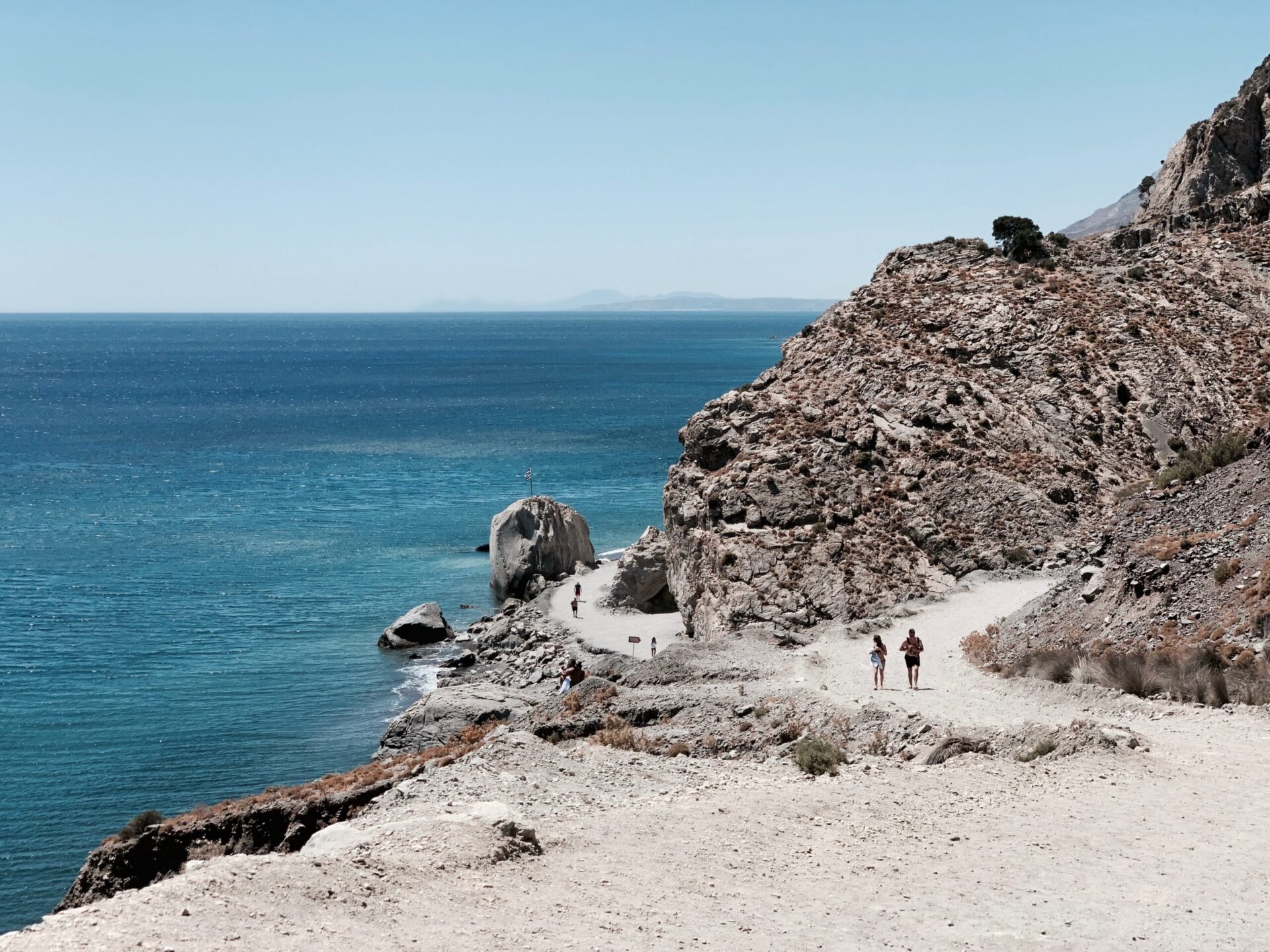
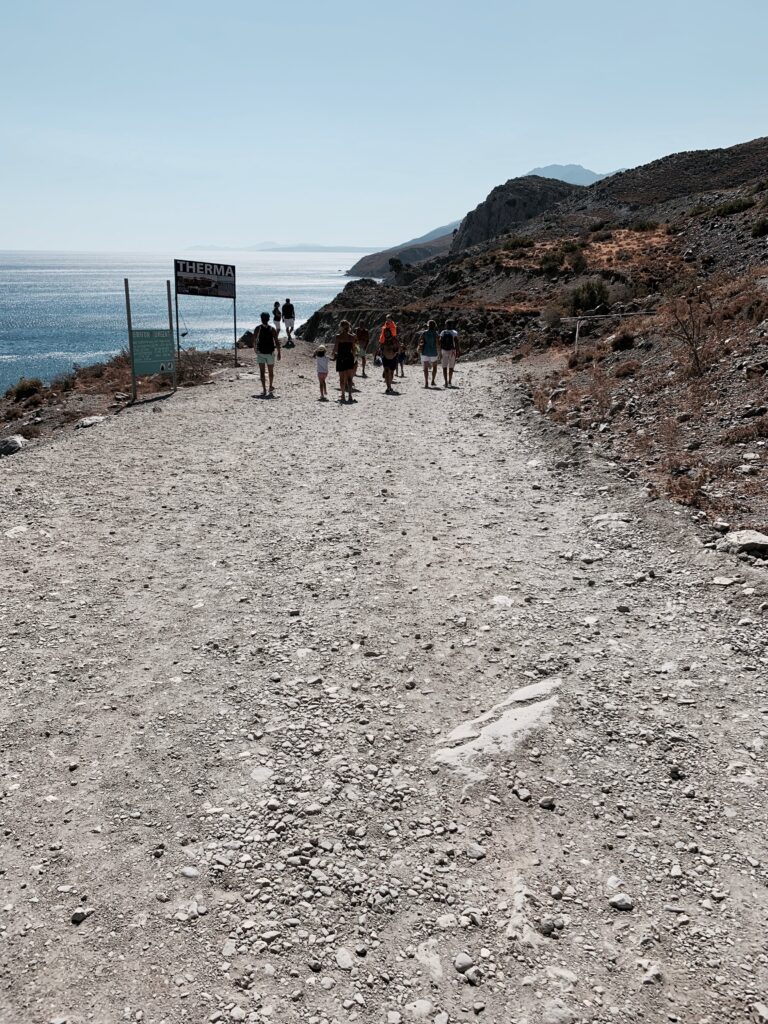
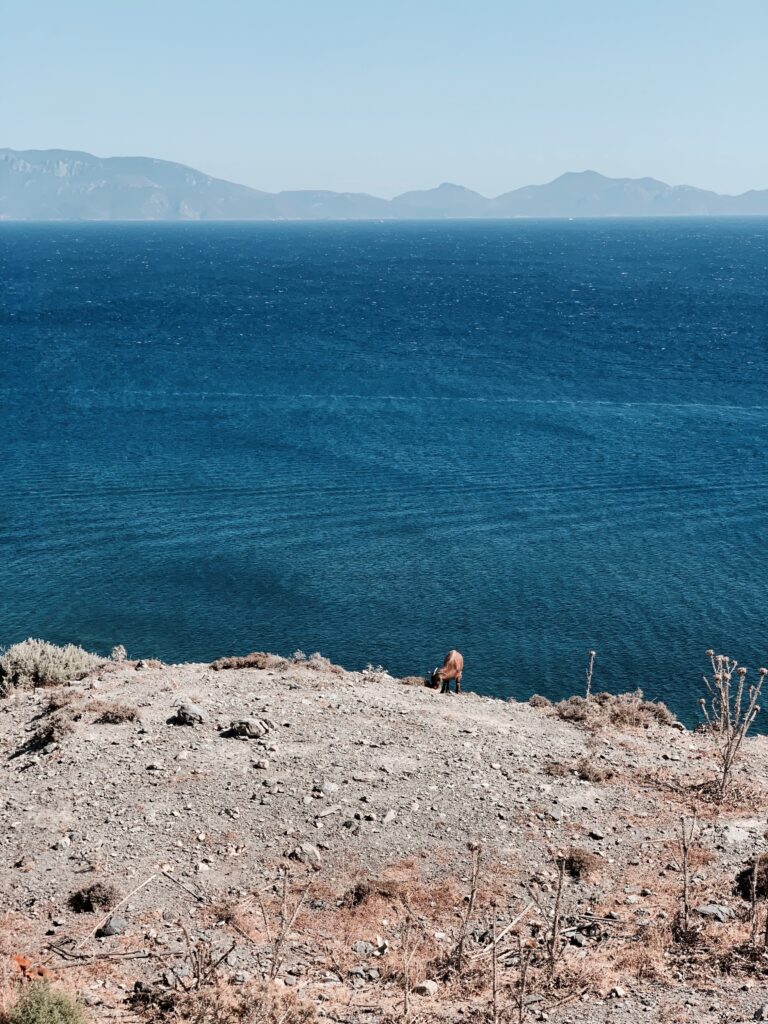
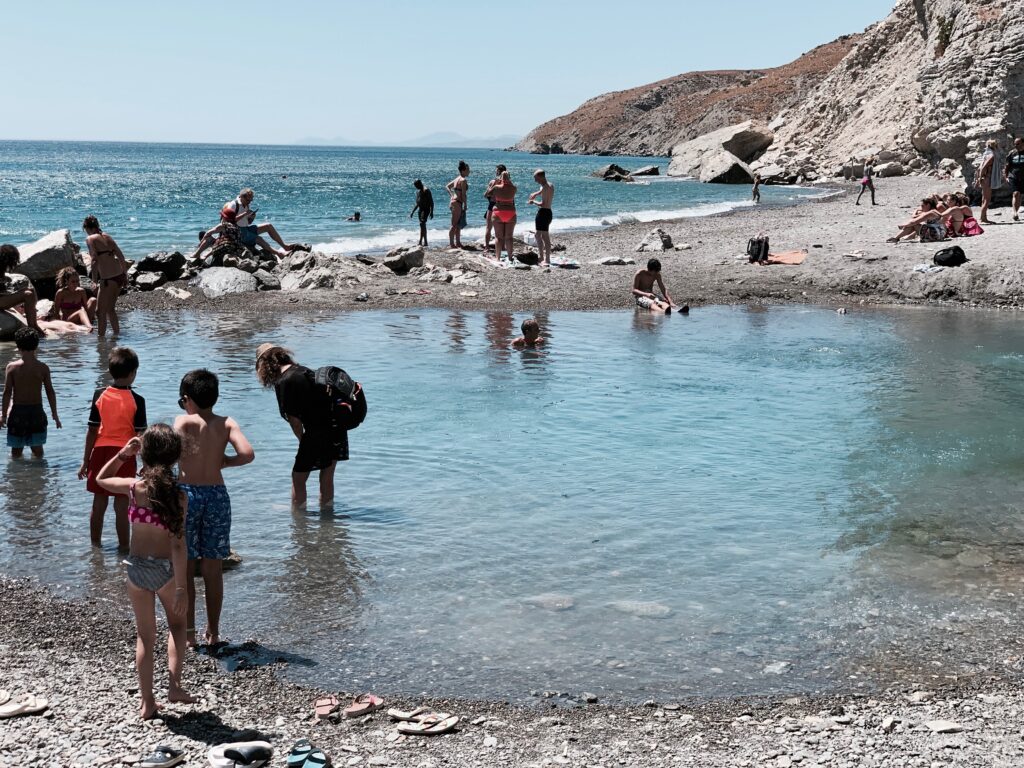
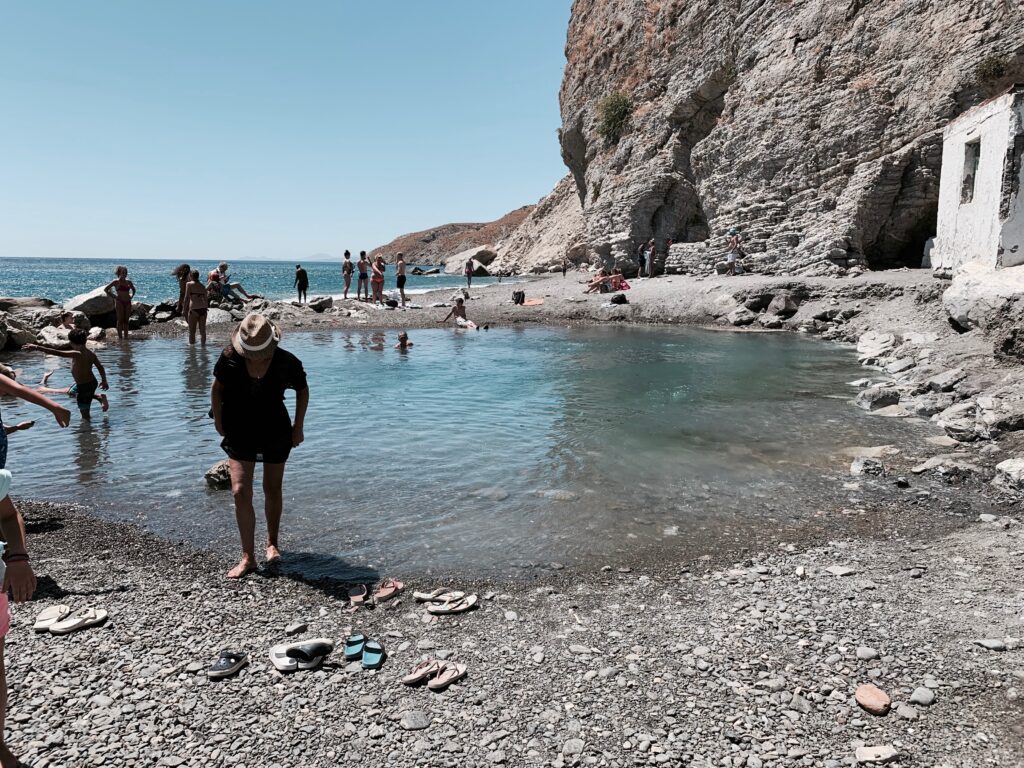
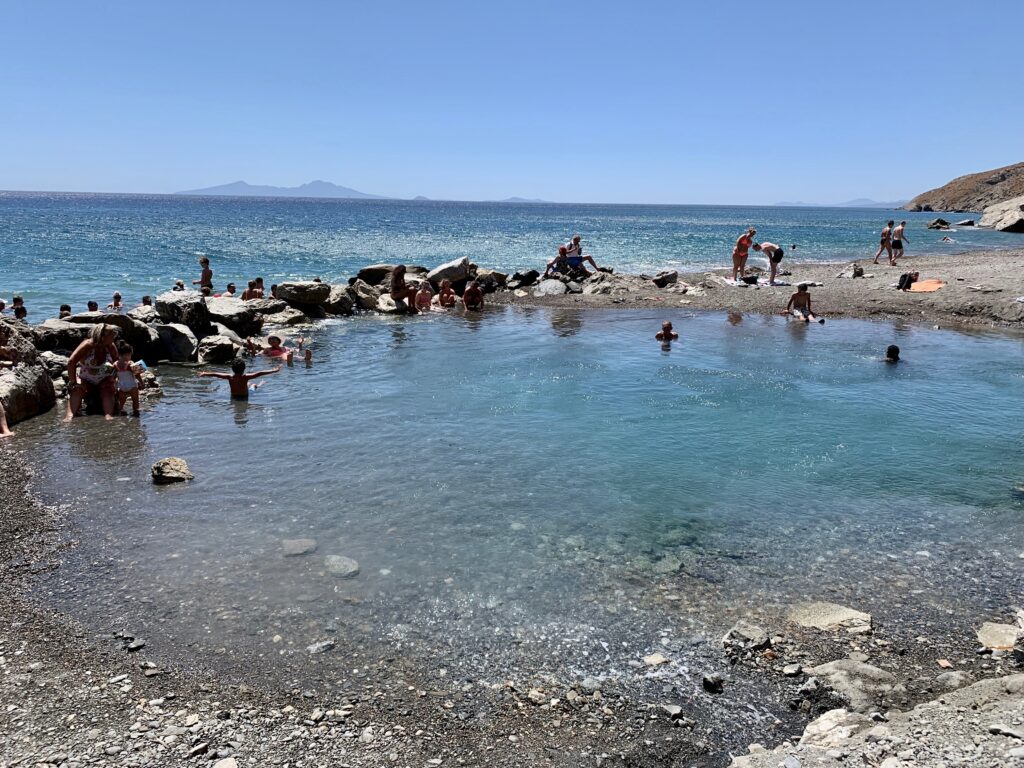
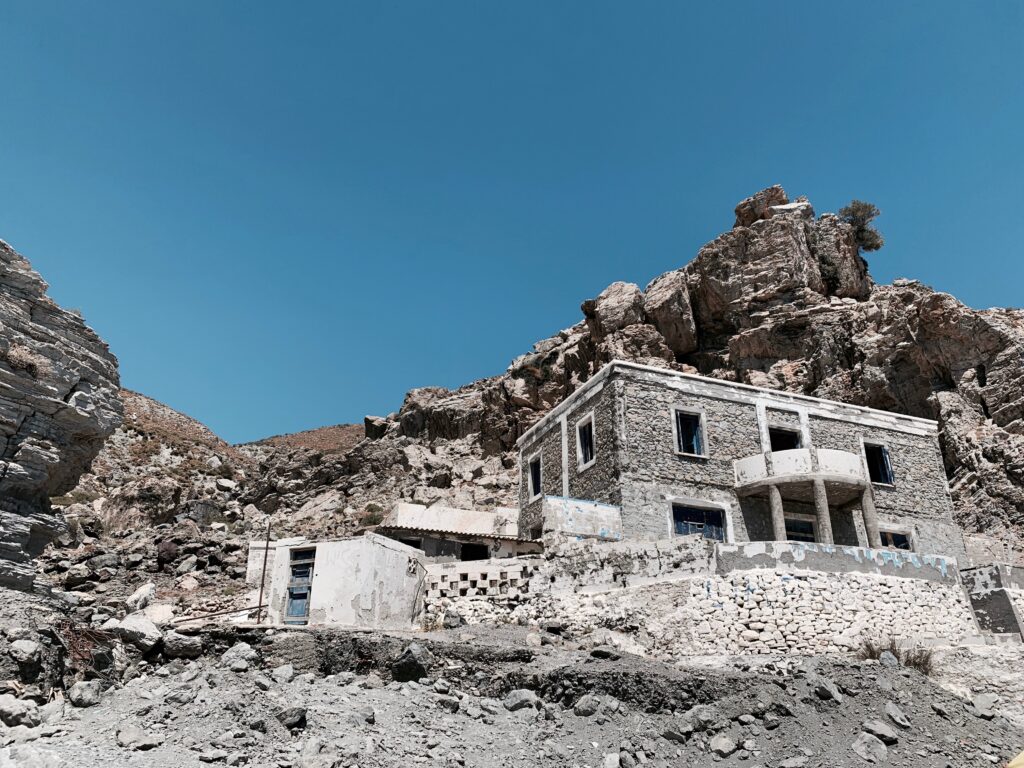
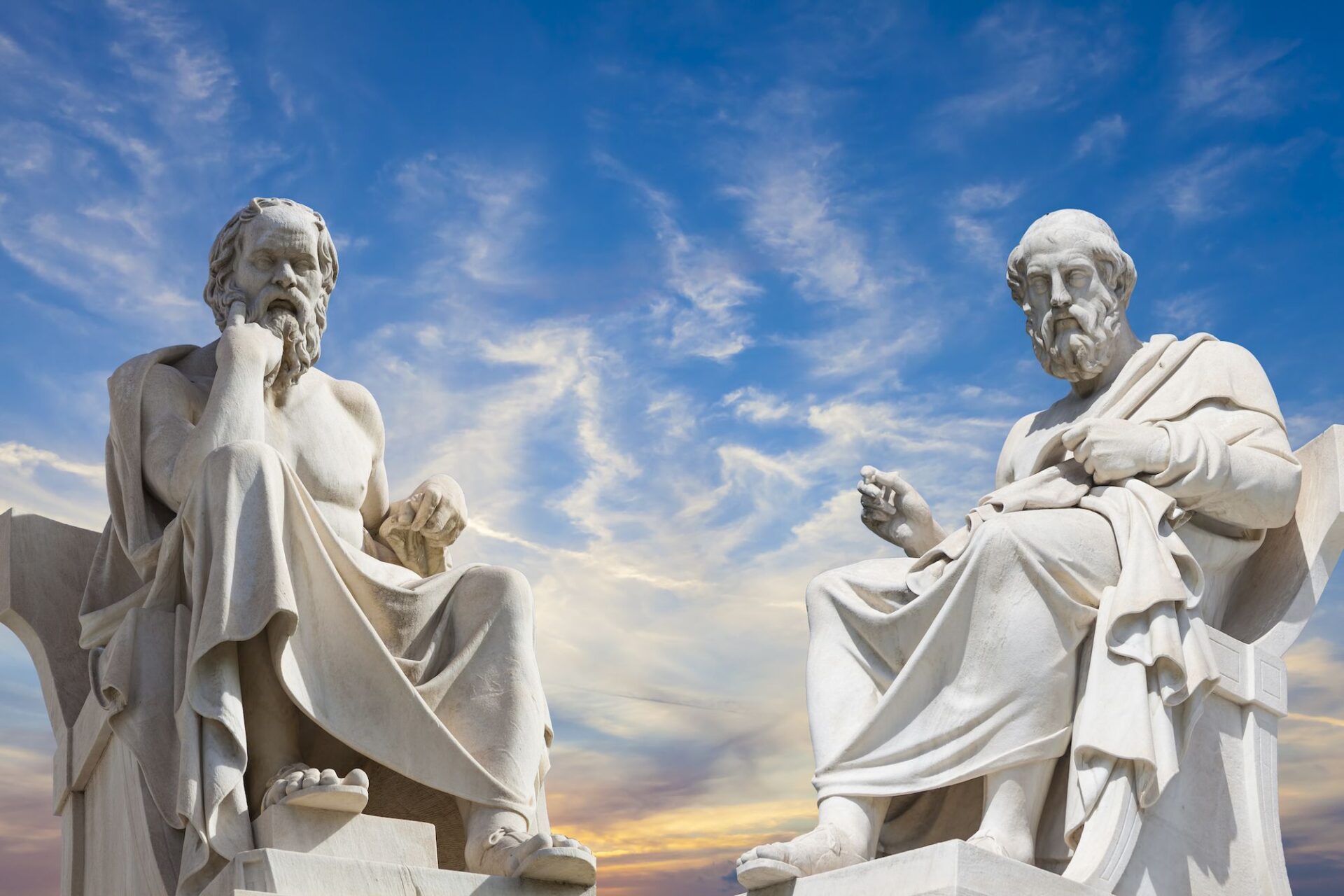
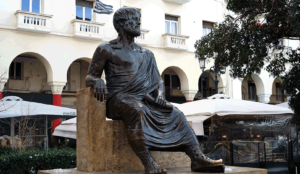
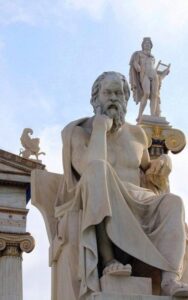
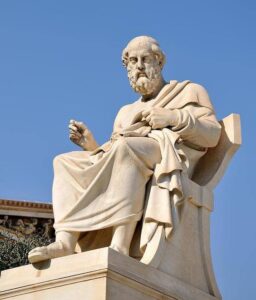
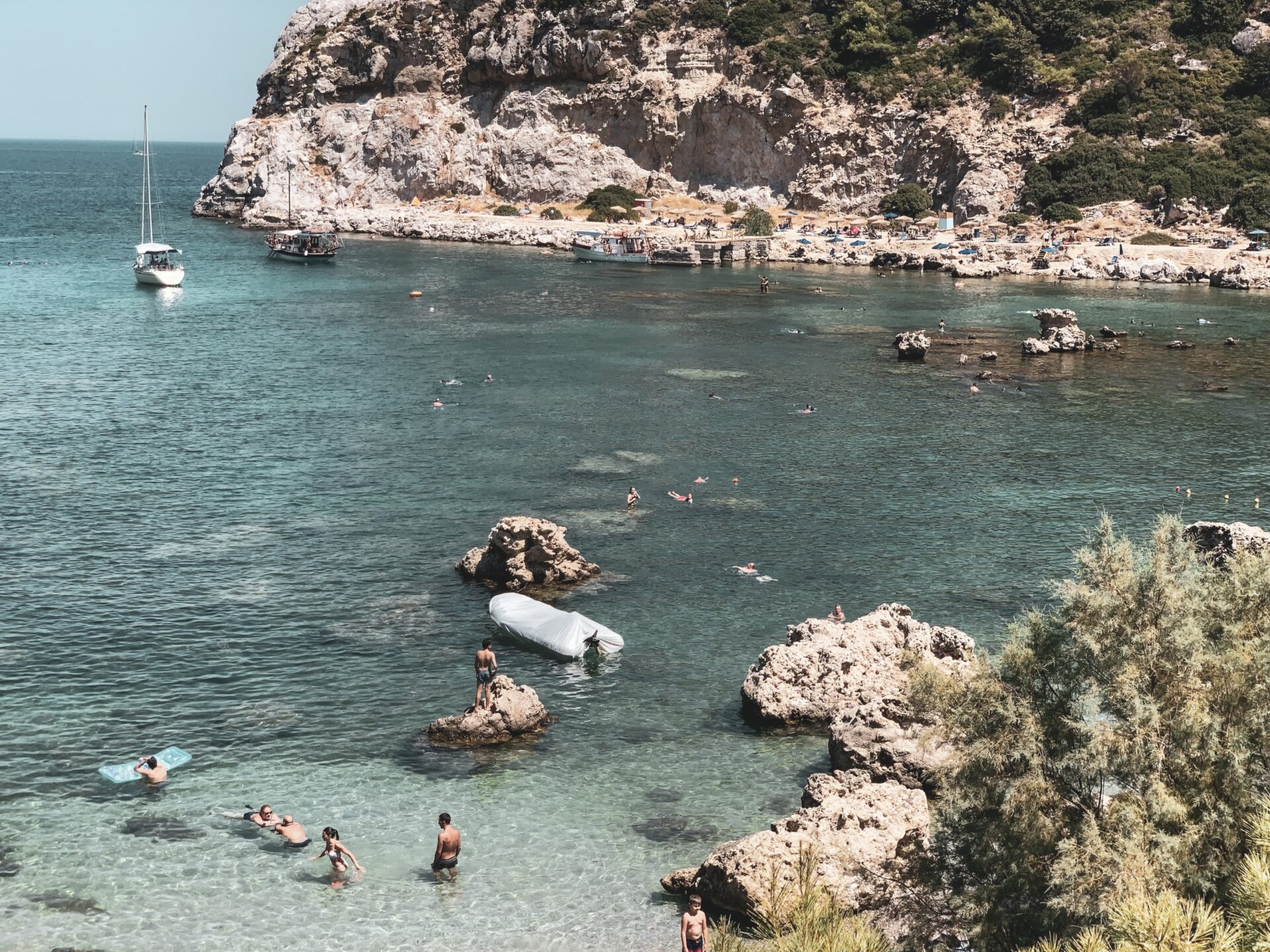
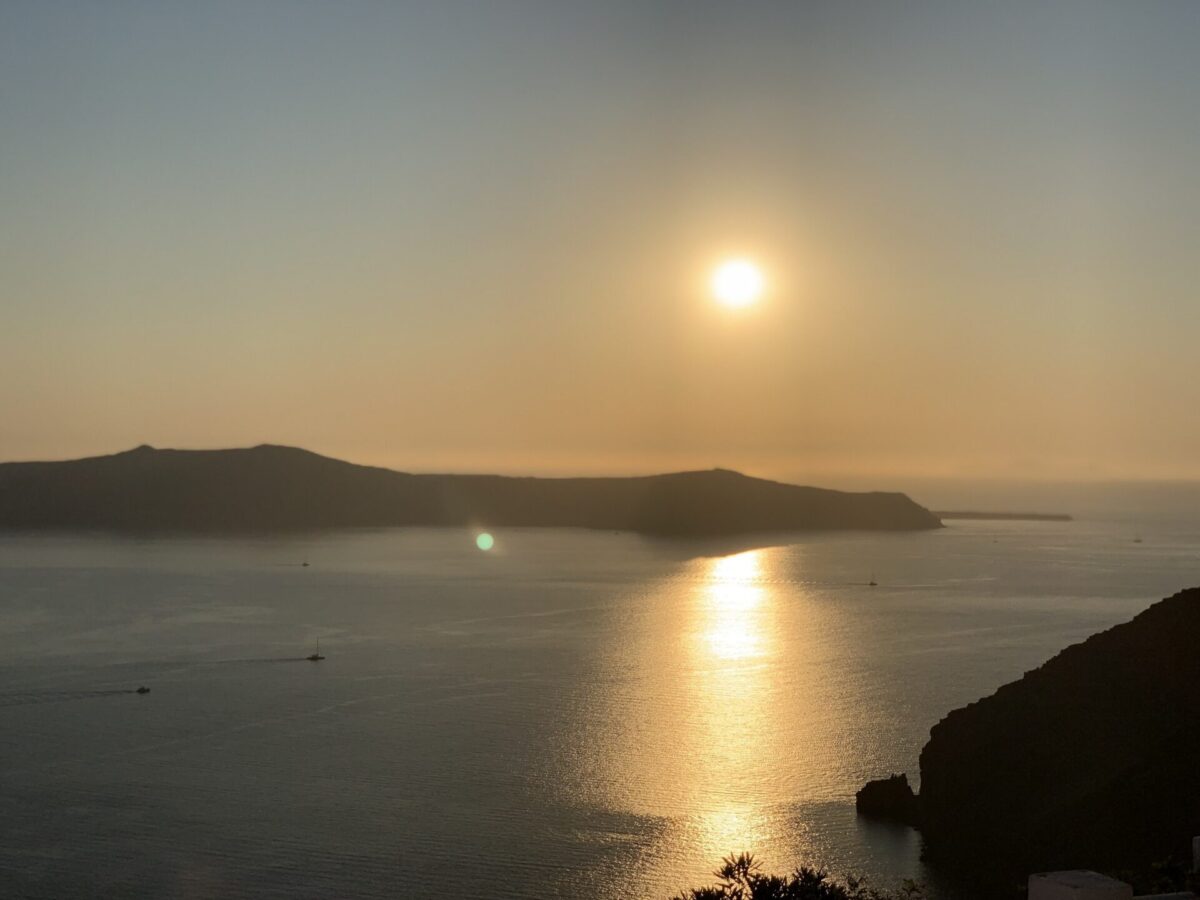 kinds of ills for me. My body breathes a sigh of relief, allergies, asthma, and a vague melancholy disappear. My soul soars free in the azure sky the second I set foot on Greek soil. Whether I’m buoyant in the Aegean Sea, standing on powerful ley lines at Ancient sites, eating nourishing food that’s all kinds of comfort, or bathed in moonlight relishing in the incomparable feeling of the warm night air on my sun-kissed skin. Greece has always gifted me a harmony, a resonance. Like so many Philhellenes and the Diaspora, the world over, Greece is my happy, healing place.
kinds of ills for me. My body breathes a sigh of relief, allergies, asthma, and a vague melancholy disappear. My soul soars free in the azure sky the second I set foot on Greek soil. Whether I’m buoyant in the Aegean Sea, standing on powerful ley lines at Ancient sites, eating nourishing food that’s all kinds of comfort, or bathed in moonlight relishing in the incomparable feeling of the warm night air on my sun-kissed skin. Greece has always gifted me a harmony, a resonance. Like so many Philhellenes and the Diaspora, the world over, Greece is my happy, healing place.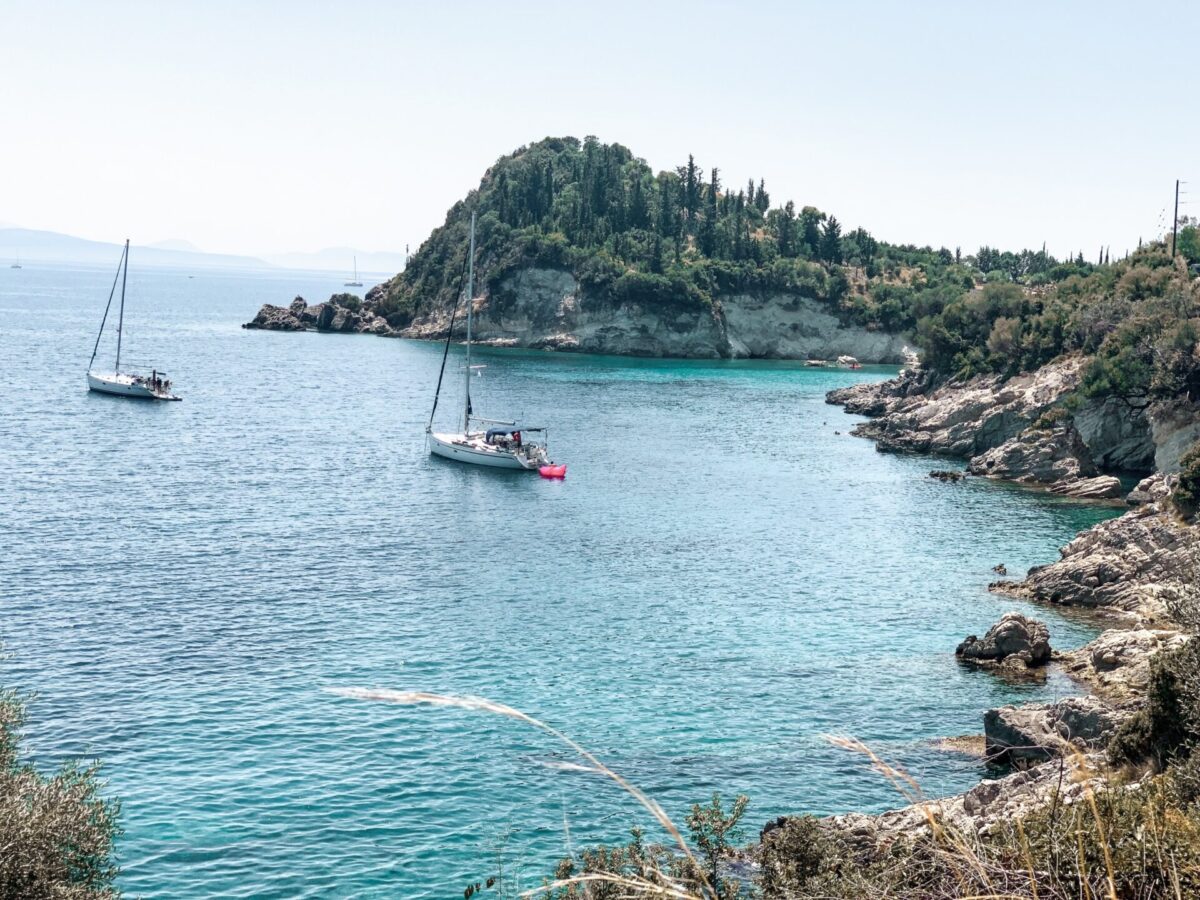
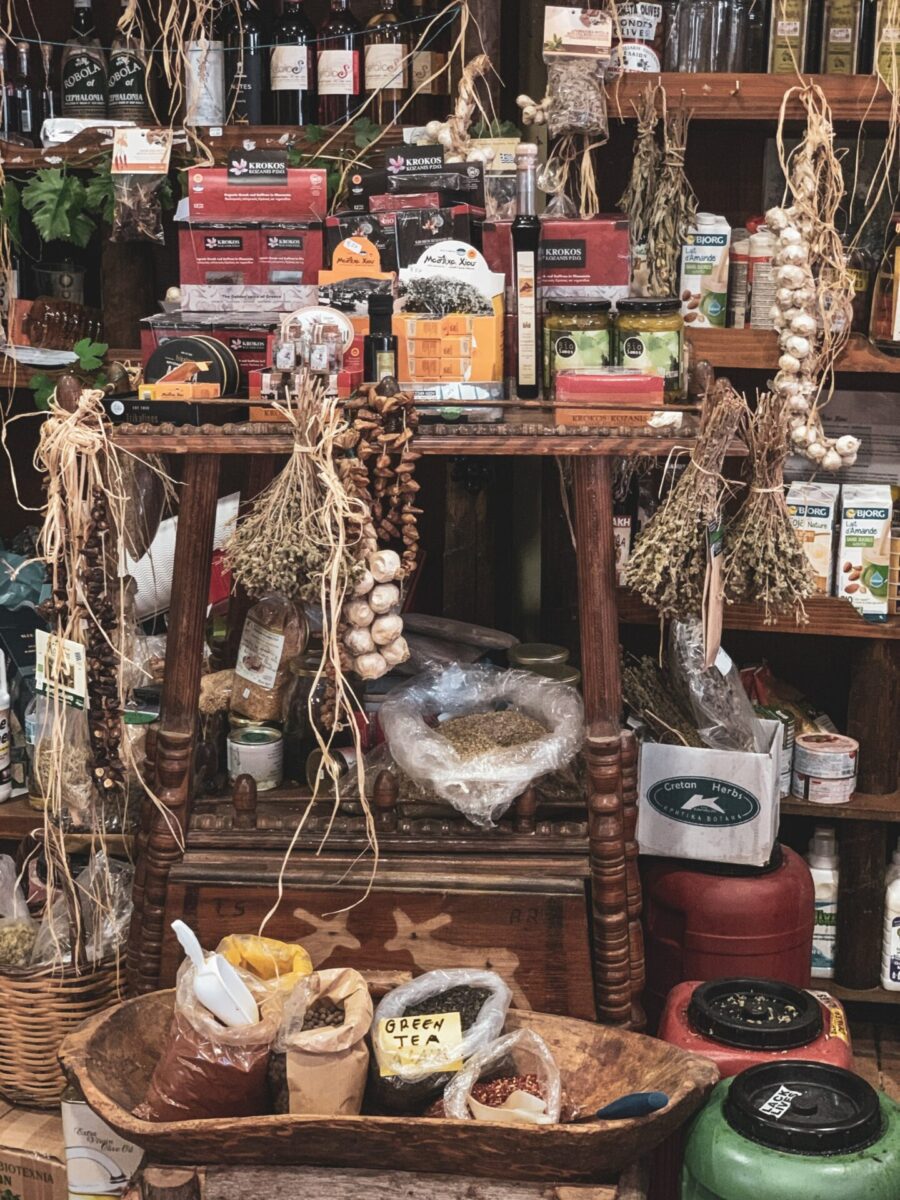 respiratory infections.
respiratory infections.